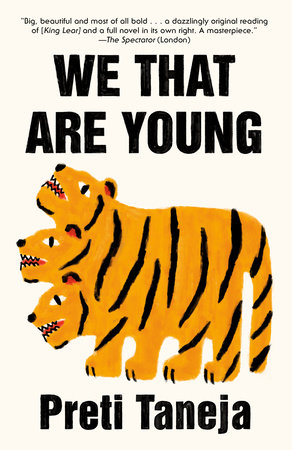i
It’s not about land, it’s about money. He whispers his mantra as the world drops away, swinging like a pendulum around the plane. The glittering ribbon of the Thames, the official stamps of the Royal parks, a bald white dome spiked with a yellow crown, are swallowed by summer’s deep twilight. The plane lifts, the clouds quilt beneath it, tucking England into bed to dream of better times. It is still yesterday, according to his watch. He winds the dial forward. Now it is tomorrow, only eight hours to go.
He’s landed the window seat with the broken touchscreen: it’s either in-flight information or
Slumdog Millionaire, the last movie he ever took Ma to. They went on release weekend. The entire line of people had been brown, so for once Ma didn’t hunch in his shadow as if his jeans and camel coat would protect her, explain her. Instead they had the same old fight about Iris, and as he bought toffee popcorn she began to sniff: she said she was catching a chill. She kept up the sniffing as the credits rolled over the entire cast line-dancing on the set of an Indian train station. When they got outside, he thought she’d been crying. He put his arms around her: her head was the perfect place for his chin to rest. He asked her if she liked the movie, she said she didn’t at all. It was not real India, except for the songs.
It’s been a long haul from JFK to the LHR stopover. He’s half shot with the comfort of Johnnie Walker, knows it’s not the best but he appreciates the label. It feels bespoke to him, like a child in a gift shop who finds a mug with his own name on it. No gift shop in America has a JIVAN mug so he borrowed JON, and that’s been it since he did this trip the other way. Thirteen years old: sold on leaving India by the promise of his first time in the air.
Forward, forward, he wills the plane, drumming his hands on the tray-table, earning himself the side eye from the woman wedged into the seat next to him. She’s using her iPhone 4 to photograph the back page of the in-flight magazine:
Ambika Gupta: offering you the miracle of advanced Numerology: a digit for your future. She pokes the man on her other side: Sardarji in a blue turban, matching jersey stretched over his belly, stitched with a white number 5. Dude looks like he’s birthing quintuplets under there. She smiles at him, sits back in her seat. There are thin red lines traced all over her hands in fading bridal henna as if she’s been turned inside out, painful, beautiful, the pattern of her is all paisleys. Her ring is a platinum band with a square-cut white diamond and her bag is Longchamps like all the pretty-pretty girls have; navy waterproof with brown leather trim, but small, the cheapest.
Don’t you know, pretty girl, that no bag is better than trying too hard? She’s flicking through the magazine: ads for Marc Jacobs, Charlize Theron, flicks to the gadgets, flicks to the movies,
clink-chime-clink go the red glass bangles stacked up her wrists.
It sounds like the overture to Ma’s practice music. Played for her to dance Kathak, with precision, while Jivan kept time. Fist thumping into palm,
Dha-din-din-dha. His memories are coloured by her last months—Ma, fading from brown to yellow, a bruise that would not heal against the hospital white.
Dha-din-din-dha became her fingers beating lightly on his temples—blurring into the rattle of her breath toward the end—the background hum of the plane’s engine in his ears. They are cruising high over the mountains of who knows where.
He pulls out his own magazine. The cover is a cartoon illustration—a tiny brown body topped with an oversized head. Under a halo of white hair, two puffed cheeks blow out candles on a vast birthday cake the shape of an udder. India, sprouting with the turrets of heritage hotels, factory chimneys. Cars race off its surface, bolts of cloth unfurl, tigers hunt goats through spurting oil rigs. The orange headline shouts:
Happy 75th Birthday Devraj Bapuji! The spotlight falls on the wily old face.
This man, on
this cover, on
this flight—this is what Ma would have called a sign.
—Sir, beverage?
The airhostess is white bread, plum jam lickable; her smile promises drinks, upgrades, a hand to hold if the plane goes down. Jon wants to show-and-tell the magazine to her,
Hey, my real name is Jivan! When I was a kid, I knew this guy! He is Bapuji, my half brother’s Godfather. He’s like my uncle, not blood, but you know. I grew up with his daughters Gargi and Radha. I remember when Sita, his youngest, was born. He might even speak the verboten words:
Have you heard of Ranjit Singh, Bapuji’s second in command? He’s my actual, like, Pa! He should just draw her a cast list complete with family trees.
—Nothing, he says. For me.
The plane turns east. On screen its tiny replica inches forward, crossing out half the world. He shifts again, trying to keep his shirt from creasing, his suit from getting crumpled. His tie has a stripe that confirms a certain university (Harvard); his shoes are handmade English (Lobbs). These are the spoils he is returning with. After fifteen years. To Delhi, city of his childhood, a diamond inside a diamond on the map.
***
The cabin lights fade. The passengers recline, stiff like store dummies, eyes masked against each other. He opens the magazine.
Birthday Greetings, by Barun J. Bharat.
J.J.J. Maybe, Jivan thinks, Barun’s one of those guys who needs that extra initial, like some men need a tie-pin, to make him feel safe. Or maybe he has a more famous brother.
The Age of Devraj, writes Barun.
We salute him, founder of The Devraj Company, one of India’s most loved tycoons, who has just achieved his Seventy Fifth year.Devraj. Grinning from a double-page spread, dressed in a safari suit and hat. Up to his knees in the watery, fragile Sunderbans, a tiger cub cradled in his arms.
Visionary Businessman, Guru to millions, employer of thousands, head of the hundred-hotel Company, father of three lovely daughters, Gargi, Radha and Sita, the caption says. Adoptive father to Tipu Sultan, a two-year-old tiger cub, who was raised by Devraj Bapuji, Animal Lover and Environmental Hero, in the Company private zoo.And also—also—Godfather to one lucky bro called Jeet. How could Barun J. Bharat, in-flight journalist, miss that? What about the textile mills from Punjab to Trivandrum, busy spinning silk into gold? Or the cement and brickworks in some serious backwaters?
Huff and puff, said the big, bad wolf, aré, of course the house won’t blow down. Don’t forget the transport industry that runs on parts made in Company factories, from steel, mined and smelted in Company concerns—Barun needs a lesson in proper research: the kind of deep Googling a person might do if they were banished to a galaxy far, far away, surviving in exile, waiting.
There is some news. The Company is moving into cars. It will produce, in the name of Devraj’s youngest, most precious daughter, Sita, and in recognition of her commitment to many causes, but particularly to Mother Nature, India’s first hybrid, the world’s smallest vehicle, aimed at the common man.
The Company reach is only growing in these times when India, Barun writes,
is claiming her rightful place on the global stage. All has been brought into being by Devraj Bapuji’s sheer determination, his far-reaching gaze. One of our most venerated business leaders, his spirituality ever feeding his superlative business ethos, his work for the girl-child in education recognised by a special Businesses in Charitable Endeavours Award given to him by the honourable Minister of Human Resource Development and the President of India. A close personal friend of left and right and an adviser on fiscal policy, his skill with a skillet at family barbecues is most appreciated by his friends. He is a man whose fearlessness in business has grown from grassroots to luxury hotels into one of India’s leading brands yet he remains humble.Wow, could Barun use a class in white writing. His prose is cloying like Diwali sweets, clogging the throat. Jalebi language, full of twists and turns, slick with the street oil it’s fried in. Yet Jon can taste his longed-for Delhi in the words. Could he speak Barun, if he tried? He has the core skills. Before he was sent to America, his father would task him to take the daily national newspapers, to search and cut and read out loud any coverage that mentioned Devraj, Ranjit or the Company concerns. He was an obedient nine years old: he only told the good stories. In those days it seemed that was all there was: it looks as if nothing has changed.
He smiles. Who would guess from this report that Devraj used to wear specially dyed, saffron-coloured Y-fronts every day? That some Guru told the old man he would live past a hundred if he did? Those are true facts. Once when he was still called Jivan, and only about ten, he was playing
The Bold and the Beautiful with Radha (it was her idea), somewhere they should not have been (Devraj’s walk-in closet). In a drawer under the kurta pyjama, the handloom shawls, the ties hanging flaccid from a rack, he saw the stacks of orange underwear for himself. Radha told him what the Guru had said
for longevity of body and name: saffron must be worn each day, next to the most precious skin. Was that the first time Radha showed Jivan her own panties? Pink they were, with frills. Then, she cried because he would not show his.
He skims the pages until a smaller headline stops his eye.
Devraj Celebrates as Company forays to Kashmir. This, he did not know.
Soon, according to Barun J. Bharat,
the discerning tourist will be able to holiday courtesy of the Company in seven-star luxury in the coolest (literally!) new destination for domestic and international travellers, reclaiming the world’s most beautiful memory of love. Where the latest iteration of the iconic Company Mukti Spa, the article says,
will make you say “Ahh.”New car launching, new hotel opening. Domestic tourist market growing in a city ripe for takeover. The whole world in recession except at Devraj Company, Main Street, New India. He sits back, the magazine a baton in his hands.
It’s not about land, it’s about money.The article ends with a love letter to Sita.
One of Delhi's top young beauties-with-brains: elegant, accomplished, so devoted to Bapuji that since she returned from UK she is at his side for every public engagement. Still single aged 22, she is India's most eligible Bachelorette, writes Barun.
There is a picture of Devraj in a white kurta pyjama and brown shawl. He is looking down at Sita, her back is to the camera—her sari blouse is laced like an old-school corset, pinching her skin to diamonds. One of Delhi’s top young beauties-with-brains: elegant, accomplished, so devoted to Bapuji that since she returned from UK she is at his side for every public engagement. Still single aged 22, she is India’s most eligible Bachelorette, writes Barun. In the final shot they are under a banner:
Green Delhi Clean Delhi! with the Minister for Tourism, he’s having a great trip with his arm around Sita’s shoulder. She is holding a hand over her mouth as if yawning or laughing, it’s hard to tell which. Jivan examines the picture. There it is, on her third finger—Gargi, Radha and Jeet all have a ring like this—Devraj’s initial twinned with theirs carved out in the flat-faced gold.
The caption says
Devrajji, Sita Devrajkumari. Special VVIP guests at the Annual Convention of Indian Tourism and Heritage dinner function, hosted at The Company Delhi Grand Hotel and Mukti Spa.Mukti again, mukti. Jivan cannot remember what it means. He closes his eyes.
Liberation. Sita was tiny when Jivan left. All he remembers is a little princess, attached to her Lottie, who was never allowed to play out. Held in the sky and the world is turning. Perhaps he has always been here, ageing on this plane. Perhaps the last years in America are no more than Disney dreams.
Outside: nothing. He calls for another whisky.
—Sorry, sir, we only serve unlimited drinks in First Class.
The flight attendant walks away, her hair so neat, her makeup so pat she could be Company-made, remote-controlled. She sweeps behind the red curtain that divides the rich from the not-so-much. Beyond that curtain is wonderland. Drinks and legroom; stewardesses who never say 'no'.
The captives of economy surround each other. A tangle of saris, plaits, cardigans, high-heeled sandals slung into empty Dunkin’ Donuts boxes, torn-up
Glamour magazines. The men stretch across the seats, the women clutch the children; the children won’t let go of their Nintendo DSis even as they sleep. Dinner is given, not served: brown plastic lumps in a makhani sauce, rice and pickles. Or white plastic lumps with herb sauce instead. He chooses Indian, then Western, cannot stomach anything. Next to him, the newlyweds try to keep food, sachets, cutlery on the tray, to eat without elbowing each other. The smells are of rehydrated flesh, the toilets, feet.
Jon’s face is reflected in the touchscreen. It looks warped, as if he has become his own old man.
Ranjit Kumar Singh, the Company’s Head of New Business, a taste for bright socks and matching breast-pocket handkerchiefs. Suits bespoke from Heritage, fabrics fresh from Company supplies.The bride beside him is finishing her food. Her fork breaks; she wipes the plastic tub with her fingers. He shifts to avoid any falling grains of rice. On this journey, it will be impossible to keep clean.
Copyright © 2018 by Preti Taneja. All rights reserved. No part of this excerpt may be reproduced or reprinted without permission in writing from the publisher.







